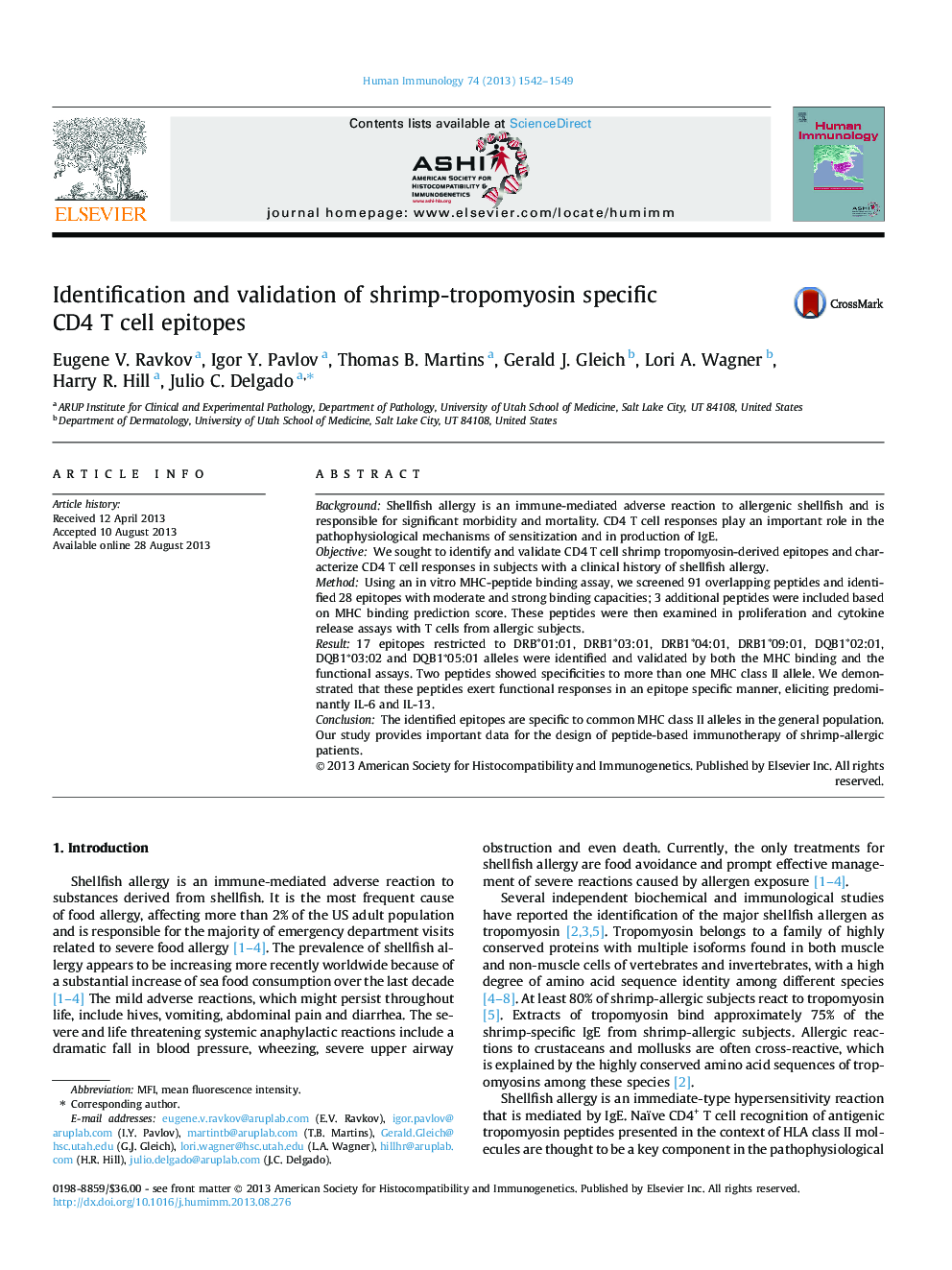| Article ID | Journal | Published Year | Pages | File Type |
|---|---|---|---|---|
| 3350740 | Human Immunology | 2013 | 8 Pages |
BackgroundShellfish allergy is an immune-mediated adverse reaction to allergenic shellfish and is responsible for significant morbidity and mortality. CD4 T cell responses play an important role in the pathophysiological mechanisms of sensitization and in production of IgE.ObjectiveWe sought to identify and validate CD4 T cell shrimp tropomyosin-derived epitopes and characterize CD4 T cell responses in subjects with a clinical history of shellfish allergy.MethodUsing an in vitro MHC-peptide binding assay, we screened 91 overlapping peptides and identified 28 epitopes with moderate and strong binding capacities; 3 additional peptides were included based on MHC binding prediction score. These peptides were then examined in proliferation and cytokine release assays with T cells from allergic subjects.Result17 epitopes restricted to DRB∗01:01, DRB1∗03:01, DRB1∗04:01, DRB1∗09:01, DQB1∗02:01, DQB1∗03:02 and DQB1∗05:01 alleles were identified and validated by both the MHC binding and the functional assays. Two peptides showed specificities to more than one MHC class II allele. We demonstrated that these peptides exert functional responses in an epitope specific manner, eliciting predominantly IL-6 and IL-13.ConclusionThe identified epitopes are specific to common MHC class II alleles in the general population. Our study provides important data for the design of peptide-based immunotherapy of shrimp-allergic patients.
